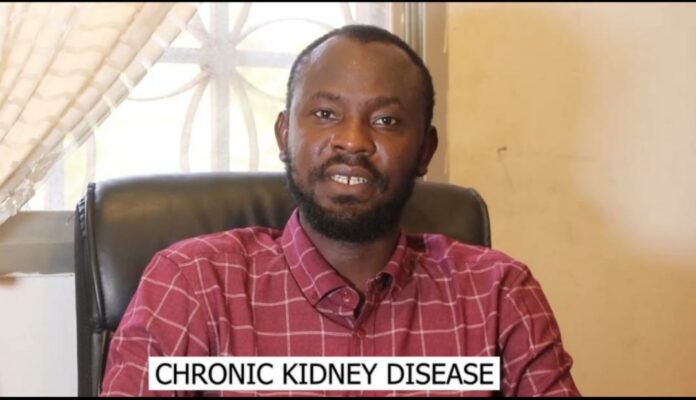Chronic Kidney Disease (CKD) is one of the most fatal non-communicable diseases in The Gambia, with a higher prevalence, incidence, morbidity, and mortality rate. Essentially, CKD is a progressive loss of kidney function to the point where the kidneys can no longer perform their normal functions. CKD has socioeconomic implications for patients, and if prompt care is not provided, many of these patients will experience a poor quality of life, which can ultimately lead to morbidity and unexpected death.
What are the normal functions of the kidneys?
- To remove excessive fluids, toxins, impurities, and waste products from the body.
- To maintain fluid and electrolyte balance.
- To control blood pressure.
If the kidneys can no longer perform these functions, we classify it as kidney failure, which can be categorized into different stages. The classification is based on the glomerular filtration rate (GFR); the lower the GFR, the more severe the kidney damage, ranging from stage 1 to stage 5, leading to end-stage renal disease (ESRD).
What are the signs and symptoms of CKD? Early signs of CKD include:
- Fatigue
- Vomiting and nausea
- Insomnia
- Rash and itching
- Low urine output in some cases
- Peripheral edema (swelling of the hands and feet)
- Difficulty concentrating
- Blood in urine
- Confusion
However, these signs and symptoms are not specific to chronic kidney disease alone. If you experience any of these symptoms, please visit the nearest health facility or hospital for early detection and possible diagnosis or referral to a specialist center.
What causes CKD? The two main causes are:
- Hypertension
- Diabetes (Type 1 and Type 2)
Other causes include:
- Malaria
- Frequent use of non-steroidal anti-inflammatory drugs (NSAIDs) like Ibuprofen, Diclofenac, Naproxen, etc., which are associated with nephrotoxicity and can damage the kidneys
- The use of traditional herbs or herbal intoxication may play a role
Obesity - Family history
- Sedentary lifestyle (e.g., lack of exercise)
- Risky human behaviors like smoking and alcohol consumption
- Kidney infections
- Older age (60 and above) based on research, which indicates a higher risk of CKD.
How to Manage CKD:
- Frequent dialysis, which serves as an artificial kidney, at least three times a week at the country’s main referral center, EFSTH, Banjul.
- Kidney transplant, where available.
- Manage other complications as they arise (co-morbidities).
Advice to the Community and Preventive Measures:
- Regular monitoring of blood pressure at nearby health facilities.
- Regular monitoring of blood sugar at nearby health facilities.
- Adherence to management plans if you have CKD or other risk factors.
- Regular exercise.
- Eat a low-salt diet.
- Maintain a balanced diet, including protein sources such as beans, local chicken, fish, and vegetables (e.g., cucumber).
- Avoid smoking and alcohol consumption.
- Reduce weight.
- Take prescribed medication and avoid self-medication.
Thank you. Please share this information.
SAIKOU JABBIE
Registered Nurse (B.Sc.)
EFSTH
Internal Medicine




